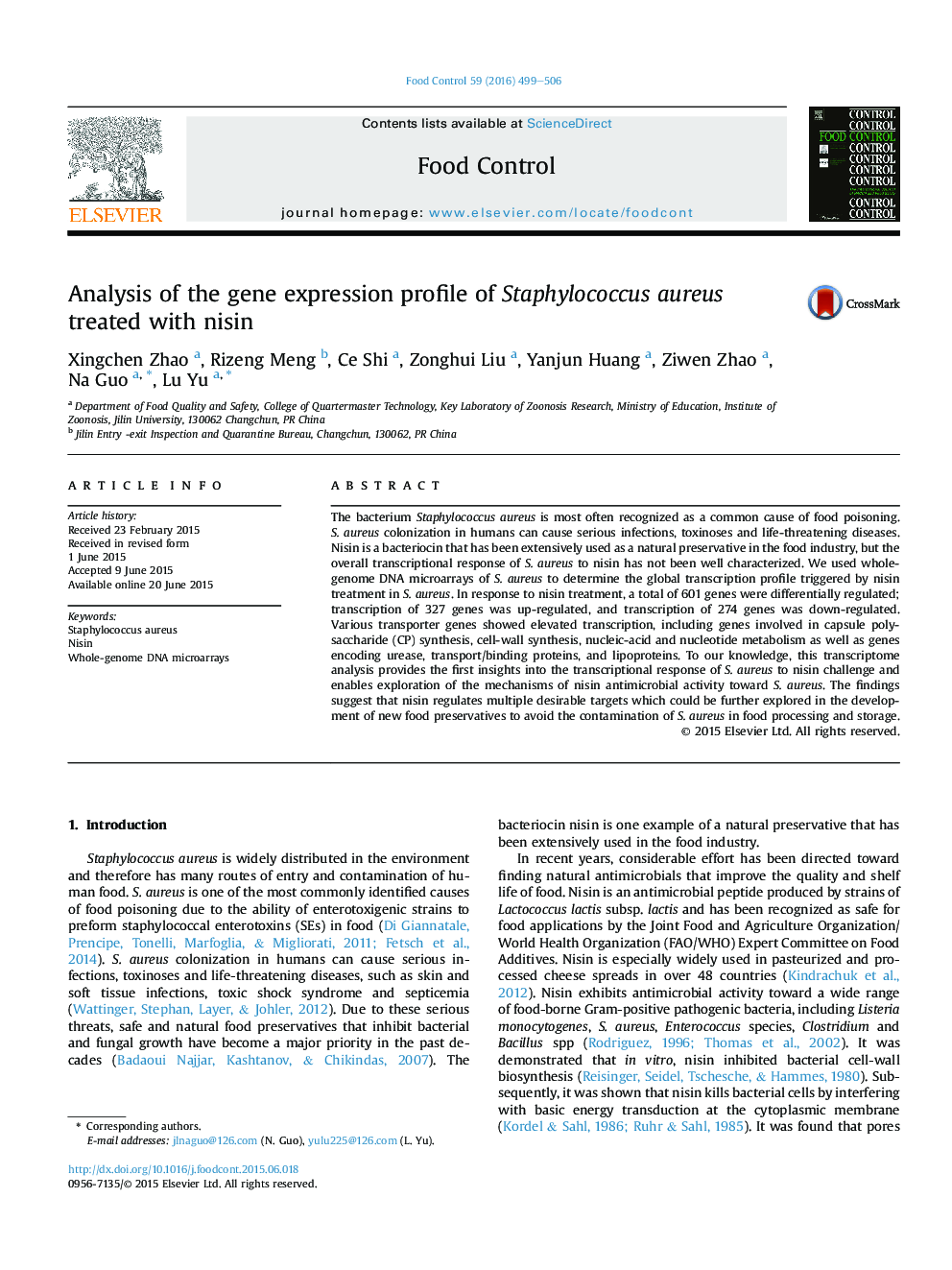| Article ID | Journal | Published Year | Pages | File Type |
|---|---|---|---|---|
| 6390617 | Food Control | 2016 | 8 Pages |
Abstract
The bacterium Staphylococcus aureus is most often recognized as a common cause of food poisoning. S. aureus colonization in humans can cause serious infections, toxinoses and life-threatening diseases. Nisin is a bacteriocin that has been extensively used as a natural preservative in the food industry, but the overall transcriptional response of S. aureus to nisin has not been well characterized. We used whole-genome DNA microarrays of S. aureus to determine the global transcription profile triggered by nisin treatment in S. aureus. In response to nisin treatment, a total of 601 genes were differentially regulated; transcription of 327 genes was up-regulated, and transcription of 274 genes was down-regulated. Various transporter genes showed elevated transcription, including genes involved in capsule polysaccharide (CP) synthesis, cell-wall synthesis, nucleic-acid and nucleotide metabolism as well as genes encoding urease, transport/binding proteins, and lipoproteins. To our knowledge, this transcriptome analysis provides the first insights into the transcriptional response of S. aureus to nisin challenge and enables exploration of the mechanisms of nisin antimicrobial activity toward S. aureus. The findings suggest that nisin regulates multiple desirable targets which could be further explored in the development of new food preservatives to avoid the contamination of S. aureus in food processing and storage.
Keywords
Related Topics
Life Sciences
Agricultural and Biological Sciences
Food Science
Authors
Xingchen Zhao, Rizeng Meng, Ce Shi, Zonghui Liu, Yanjun Huang, Ziwen Zhao, Na Guo, Lu Yu,
